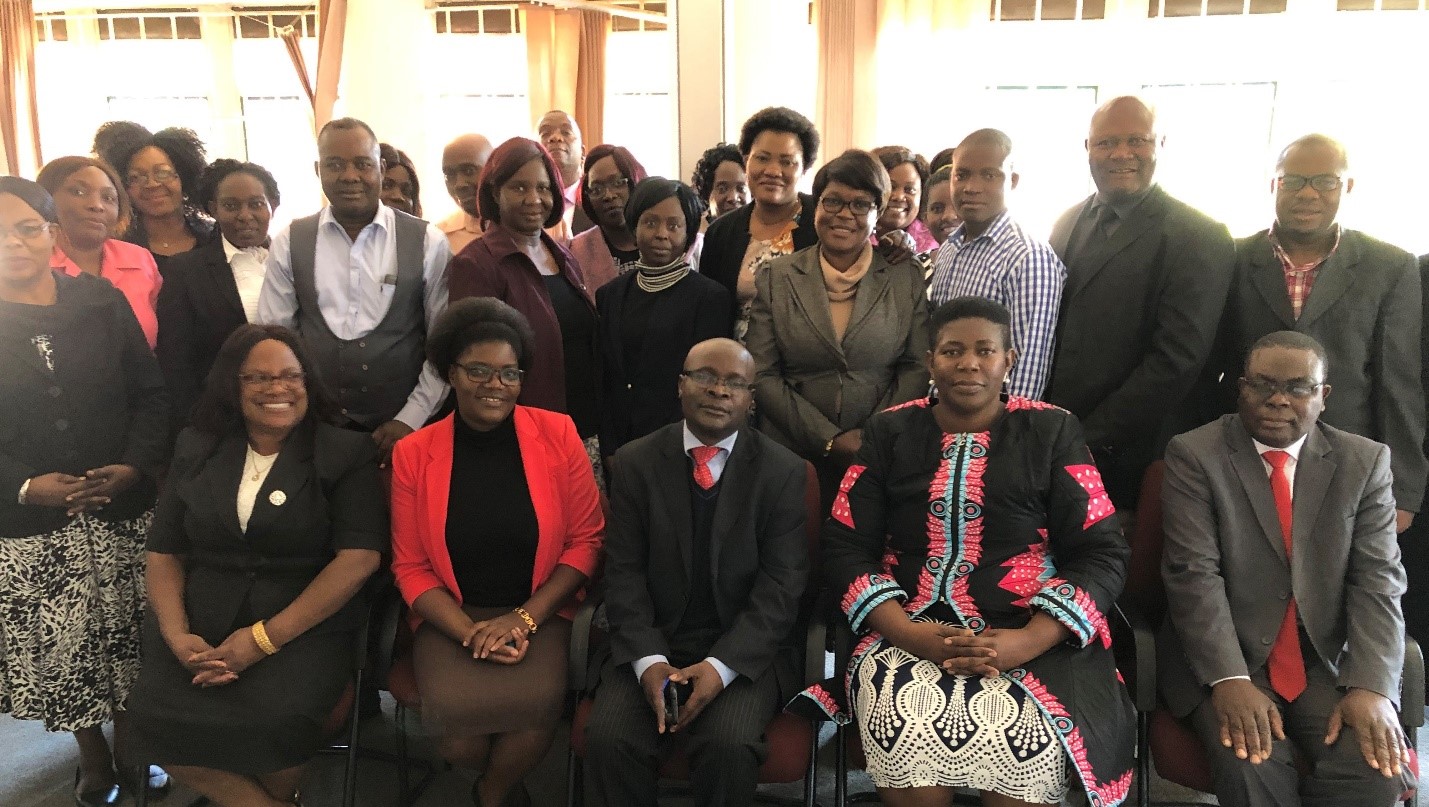
A meeting at the Education Broadcasting Centre in Lusaka, Zambia on 4 June 2019 explored the monitoring and evaluation strategy for COL’s Open/Innovative Schooling (OIS) model which is being implemented in the country. The OIS model involves four inter-related phases: developing, piloting, scaling and mainstreaming.
Zambia, through the Directorate for Distance Education within the Ministry of General Education, and with the active support of the Zambian College of Distance Education, recently completed Phase 1 of the model – developing curriculum-based digital content. The country is preparing to launch Phase 2 which includes piloting the use of this content in 20 centres, comprising 5 mainstream schools and 15 continuing education centres. The Zambian task team and COL’s representative agreed that decisions on moving from one phase to the next should be evidence-based. Appropriate data needs to be collected, analysed and reported and is likely to involve both quantitative and qualitative evidence. The team from the Ministry of General Education plan to work with the Central Statistics Office to develop appropriate national indicators, instruments and digital platforms to manage the data collection, analysis and reporting cycle.
Tony Mays, COL’s Education Specialist: Open Schooling said, “Monitoring and evaluation are complementary processes which can help to ensure that projects stay on track. However, if we are to achieve the desired impact, it is necessary to close the feedback loop from reporting into new action in cycles of continuous improvement.”


